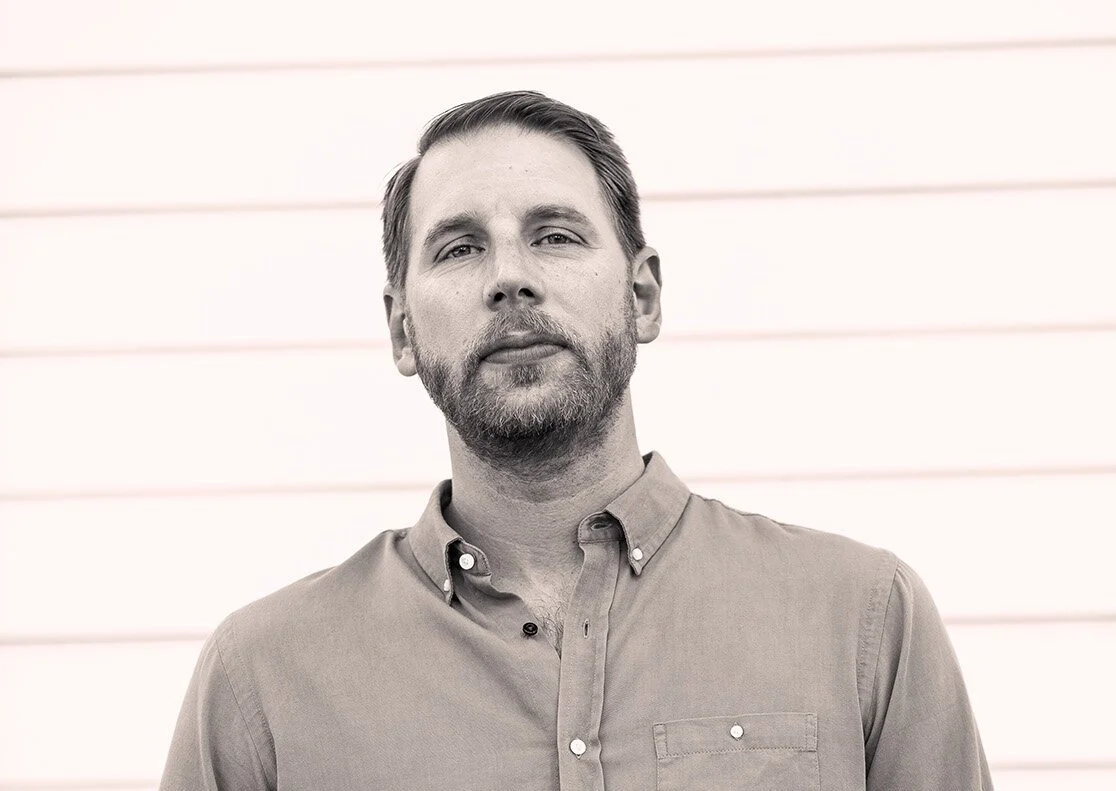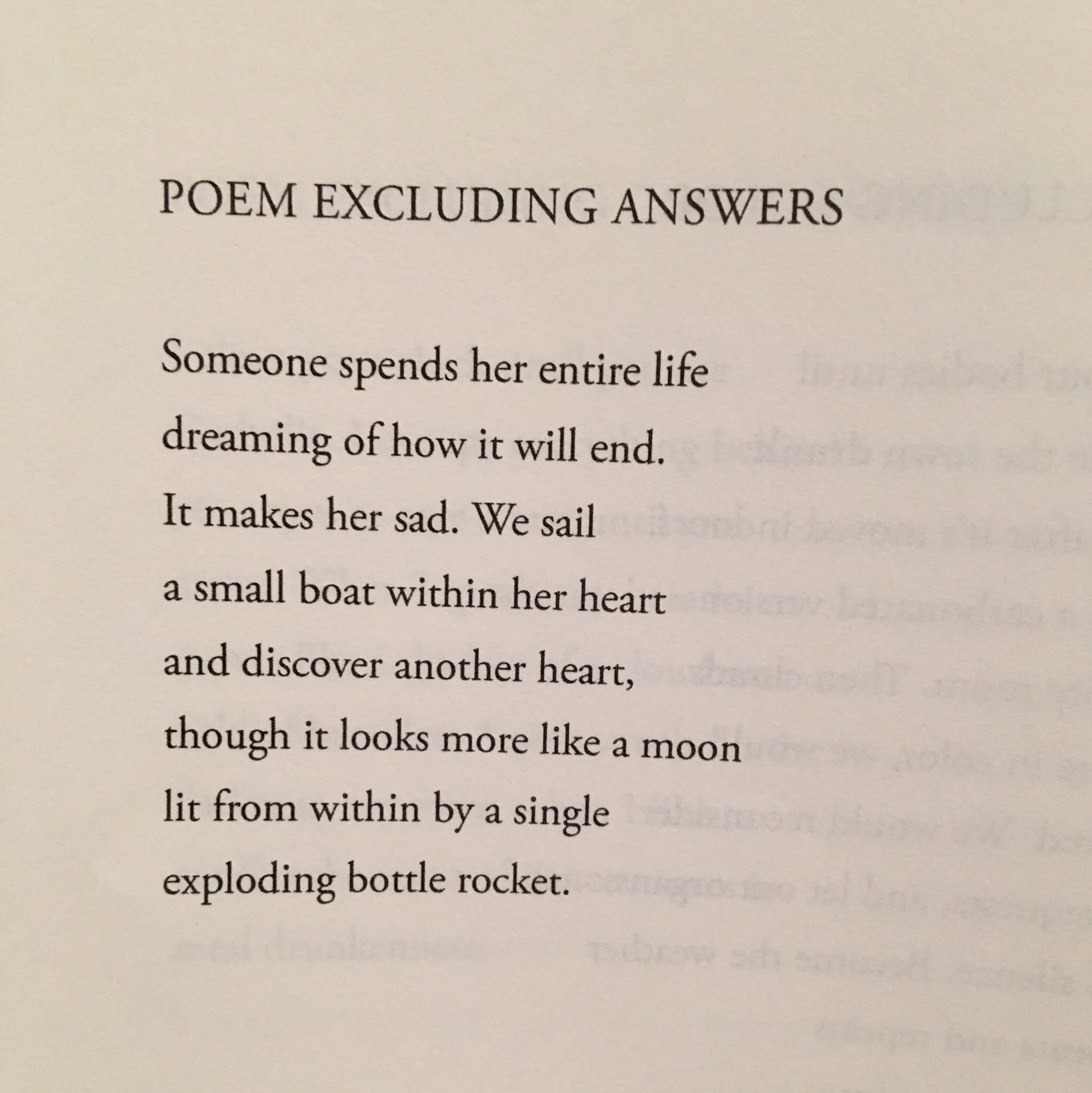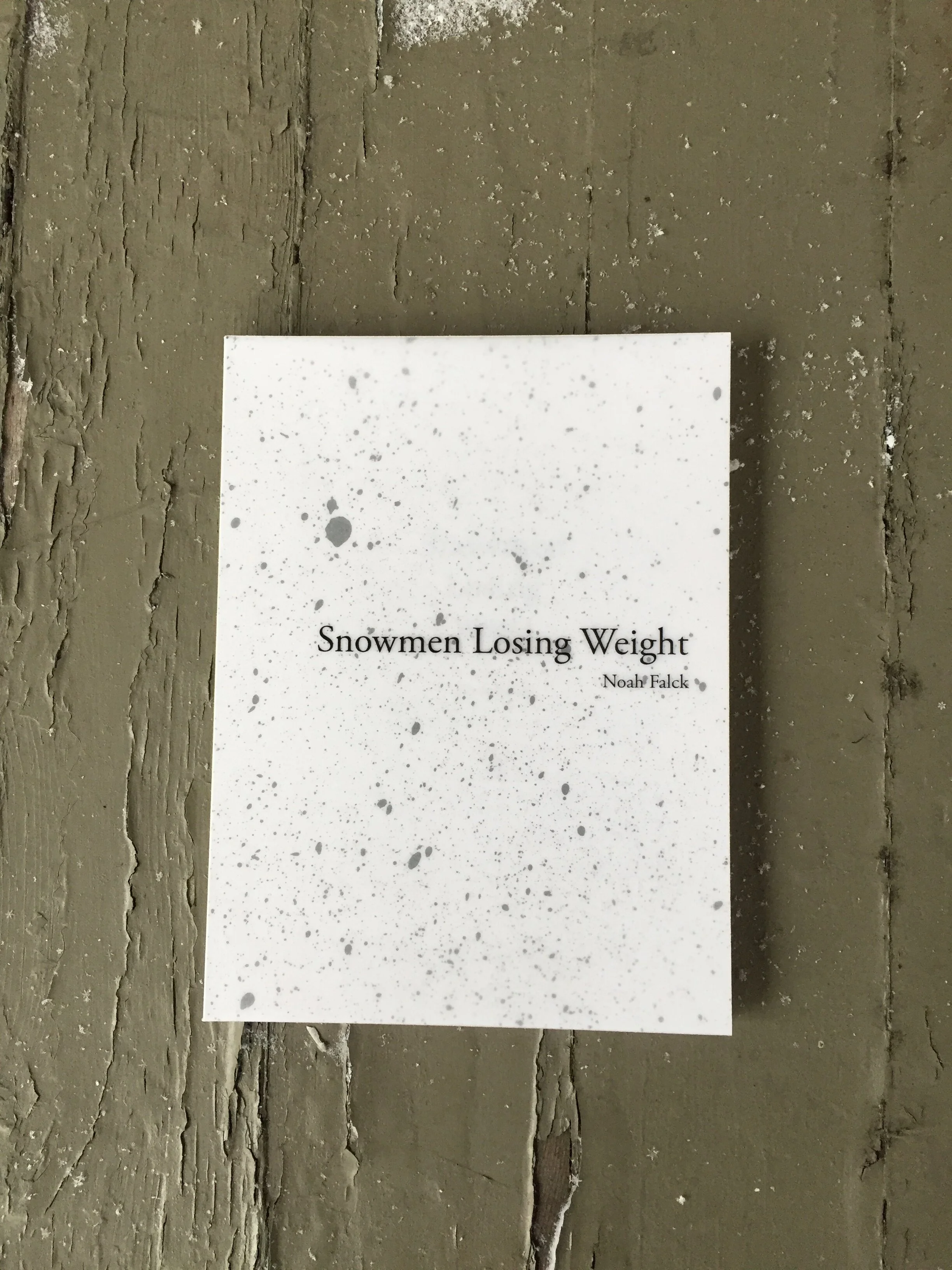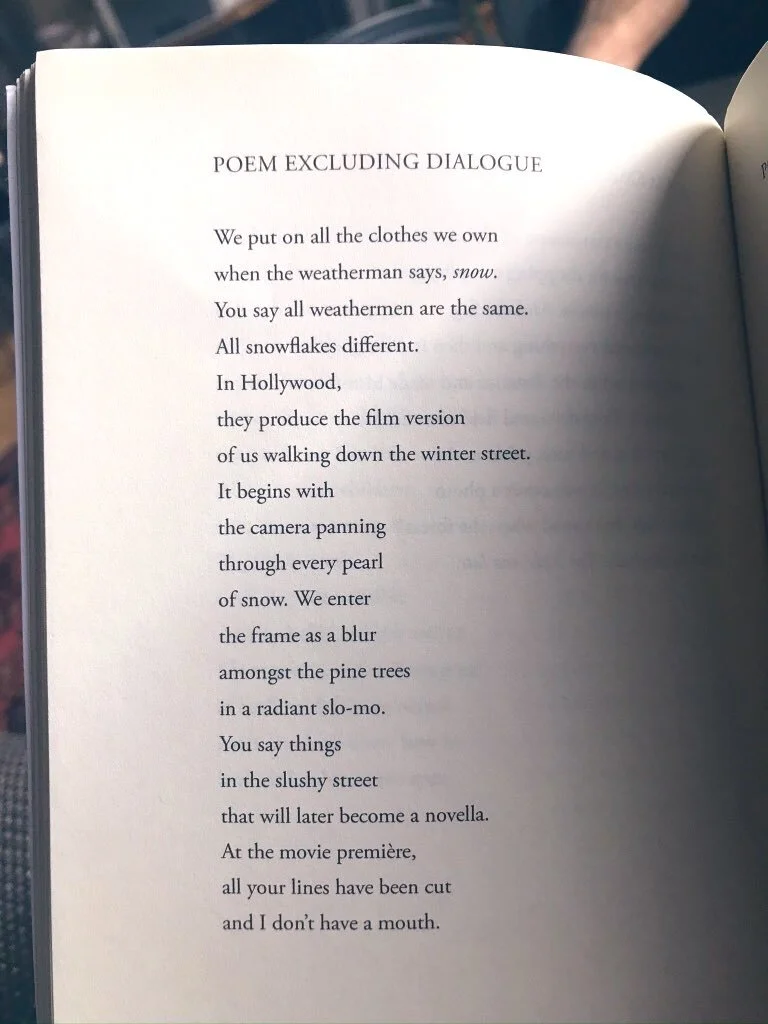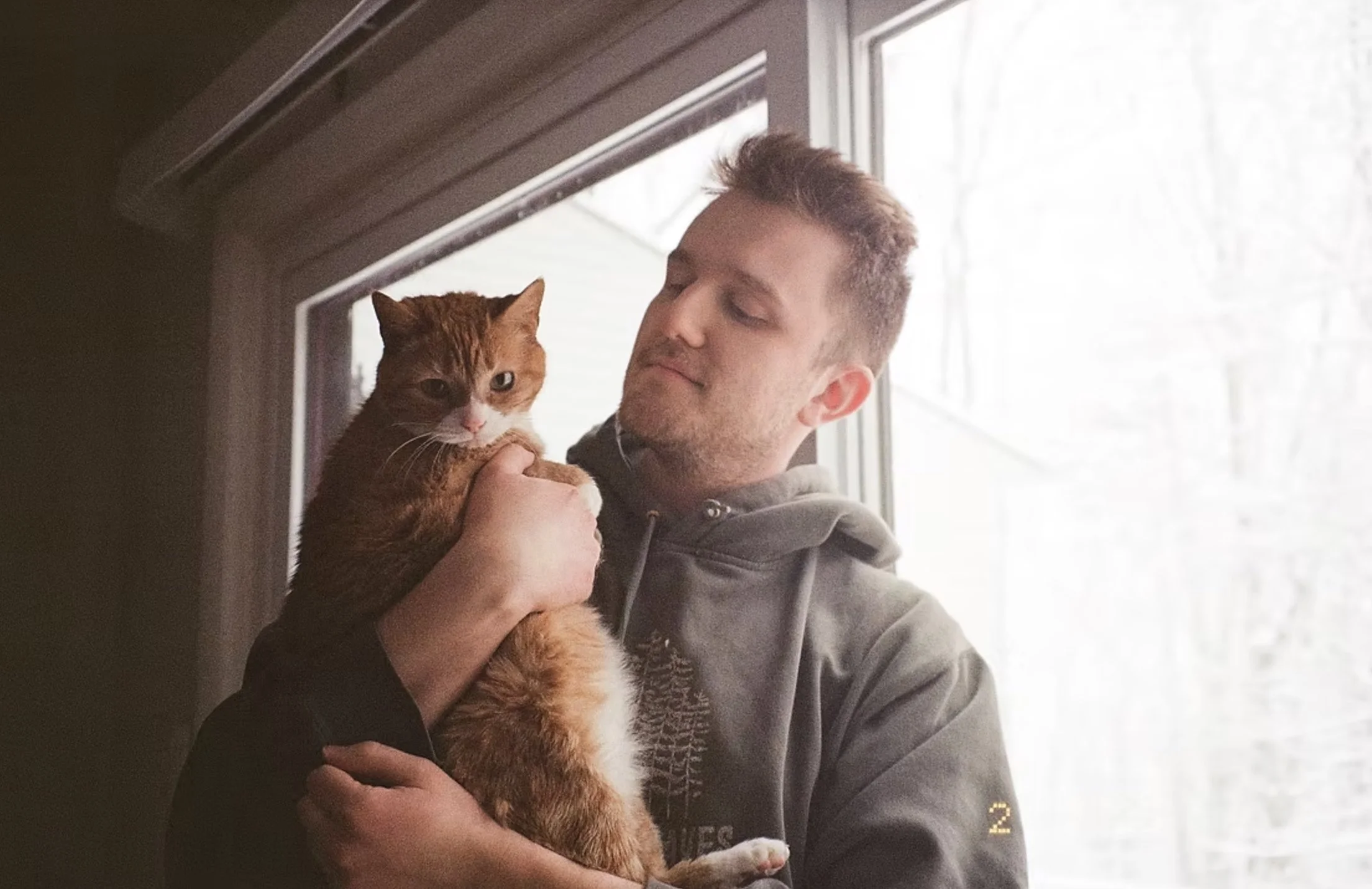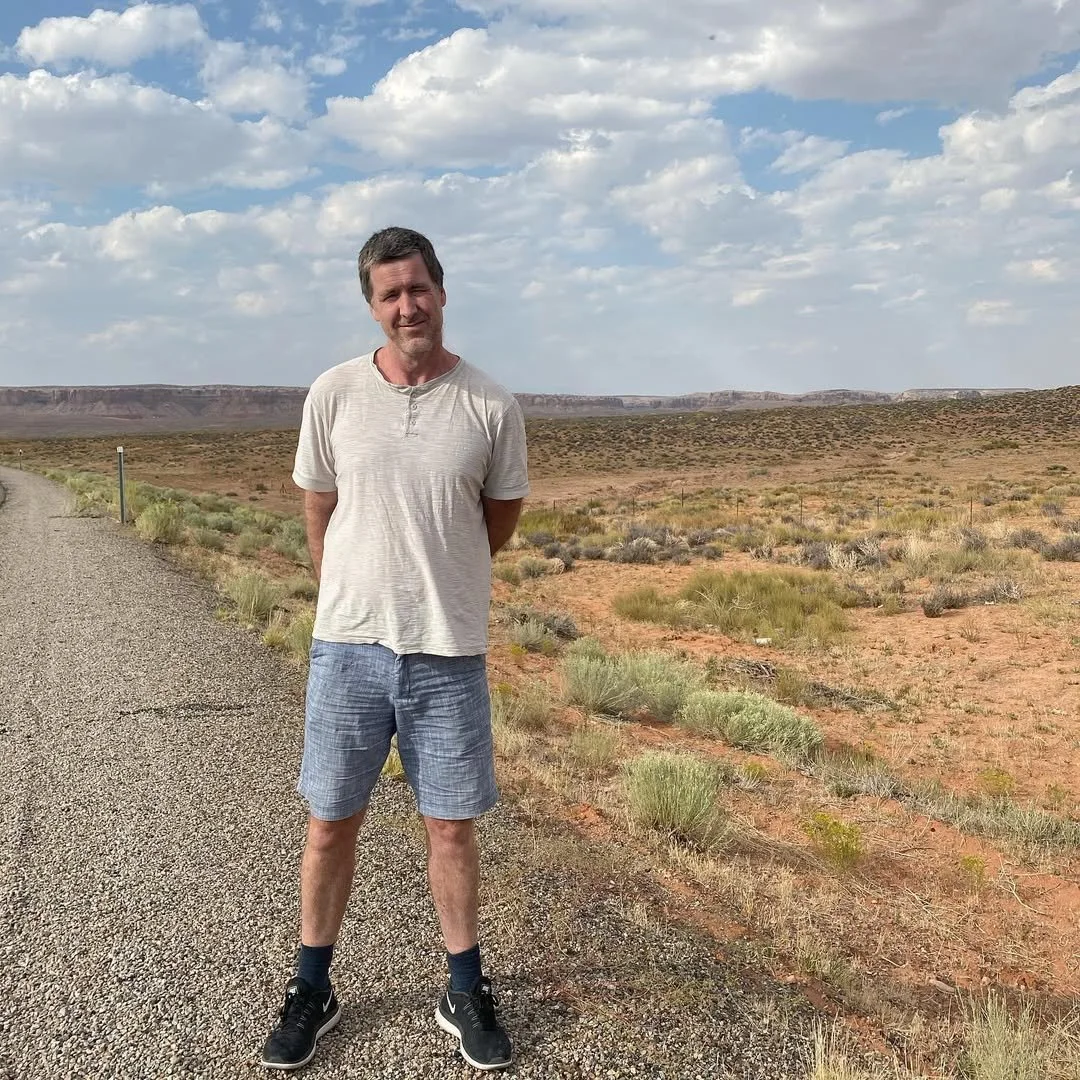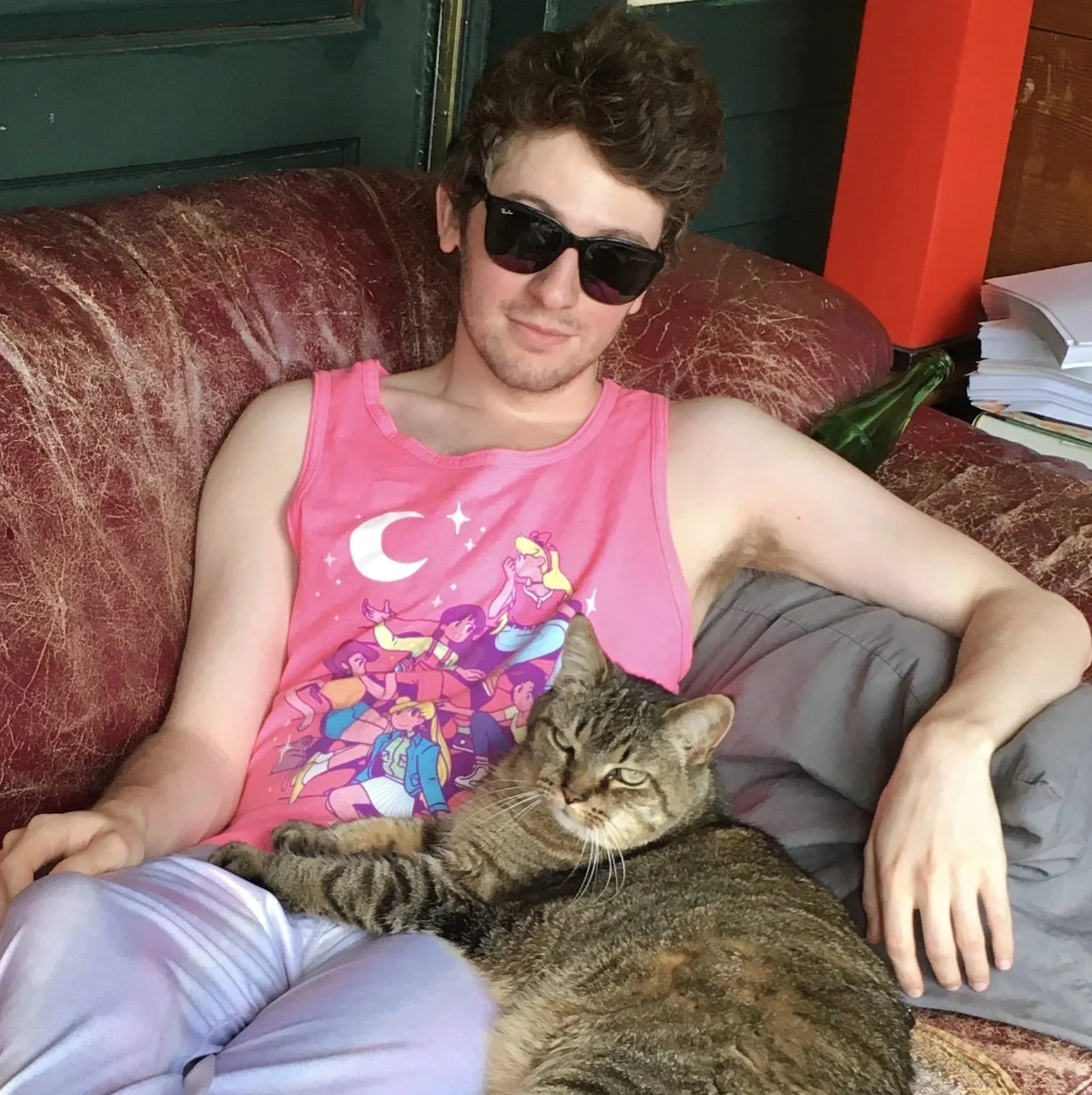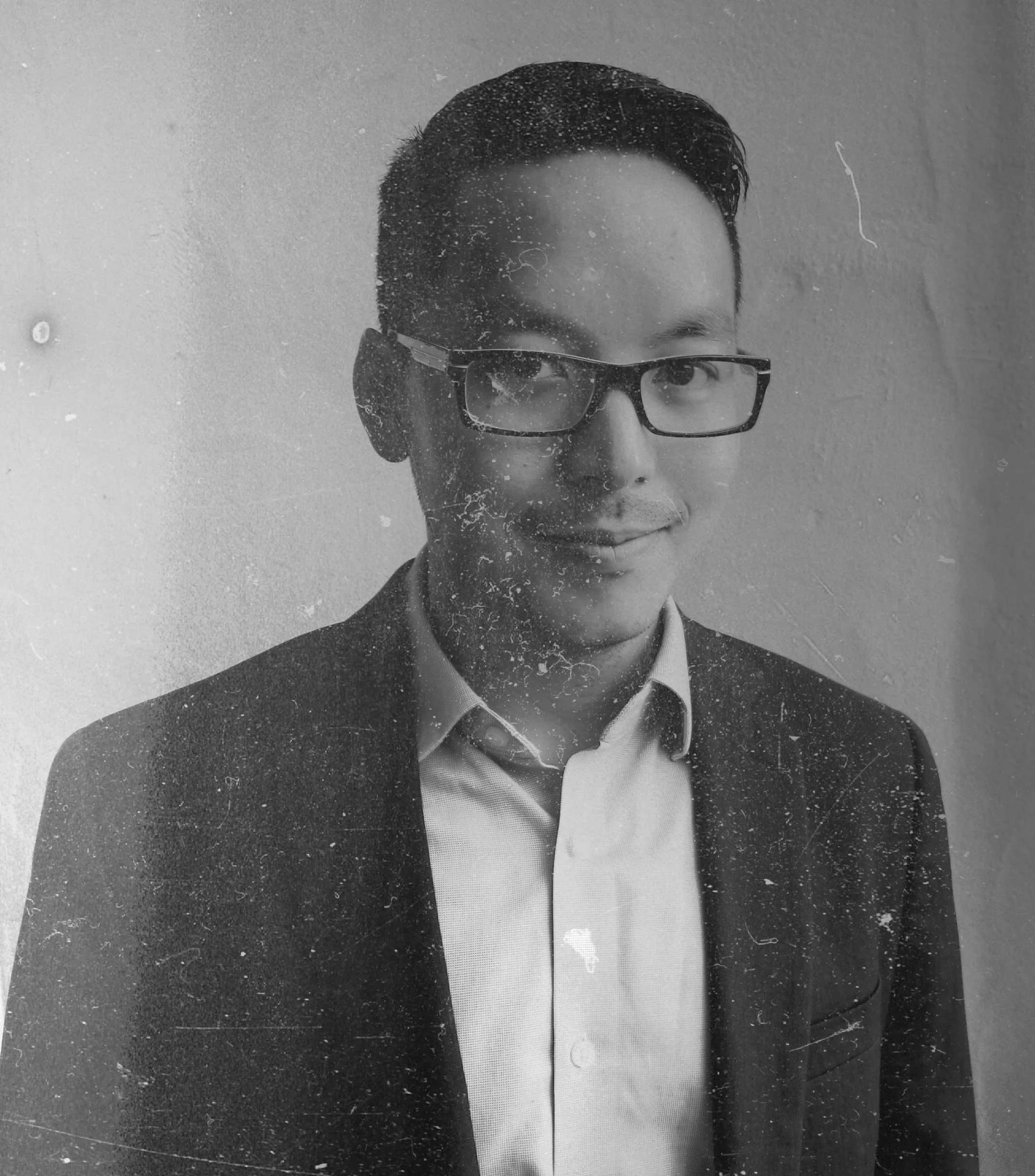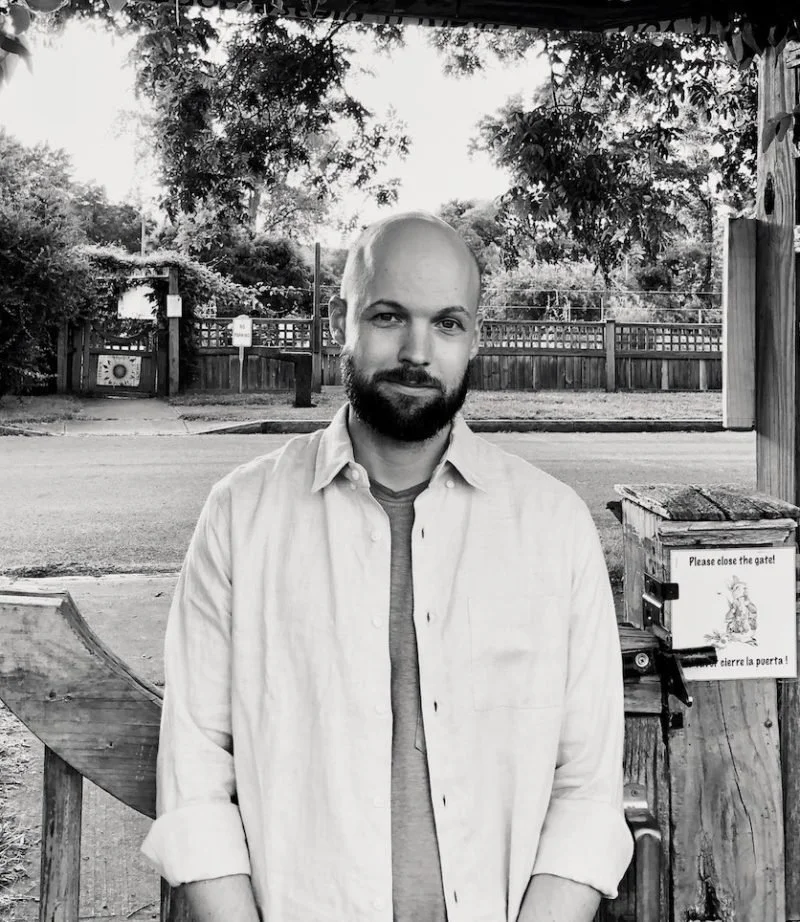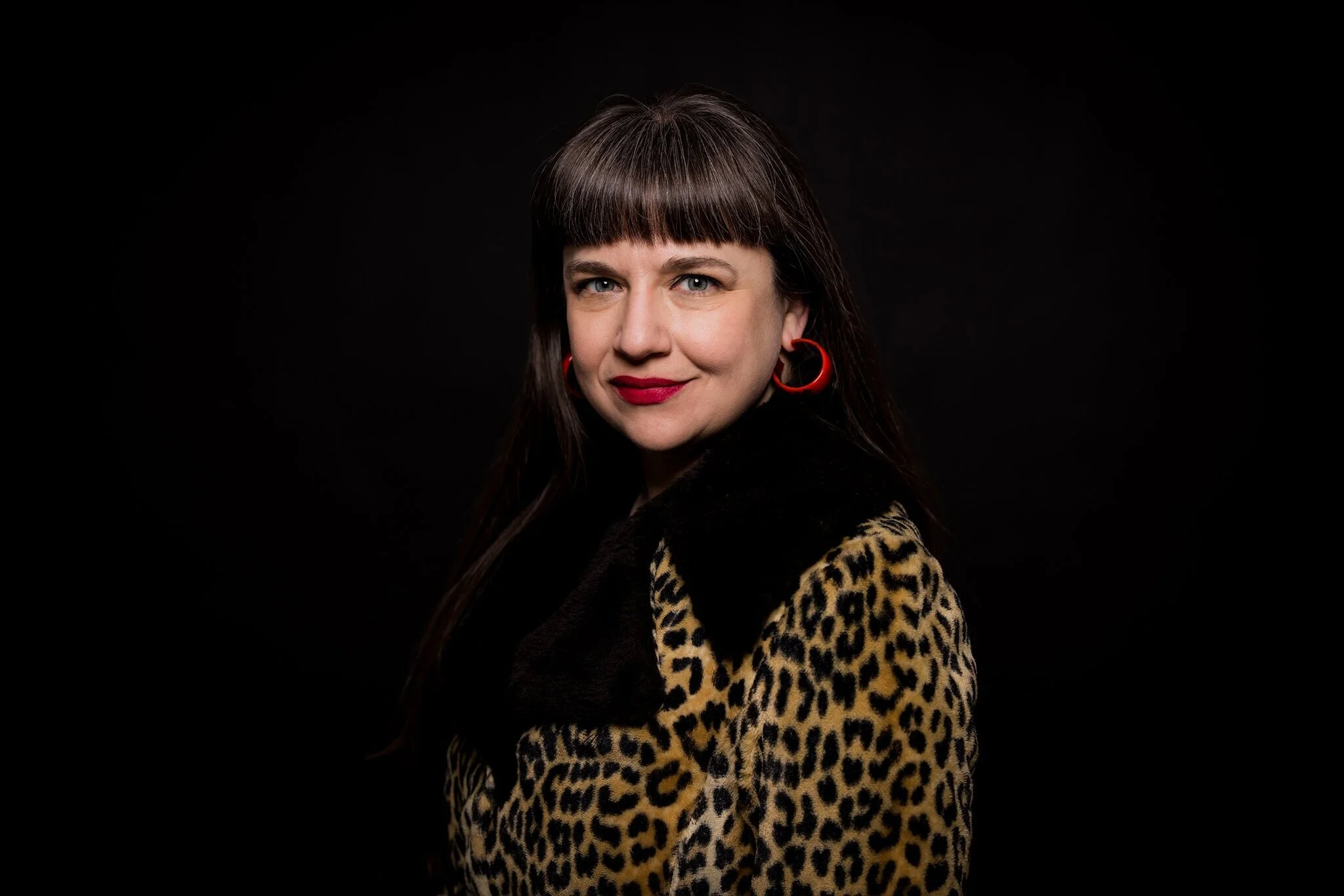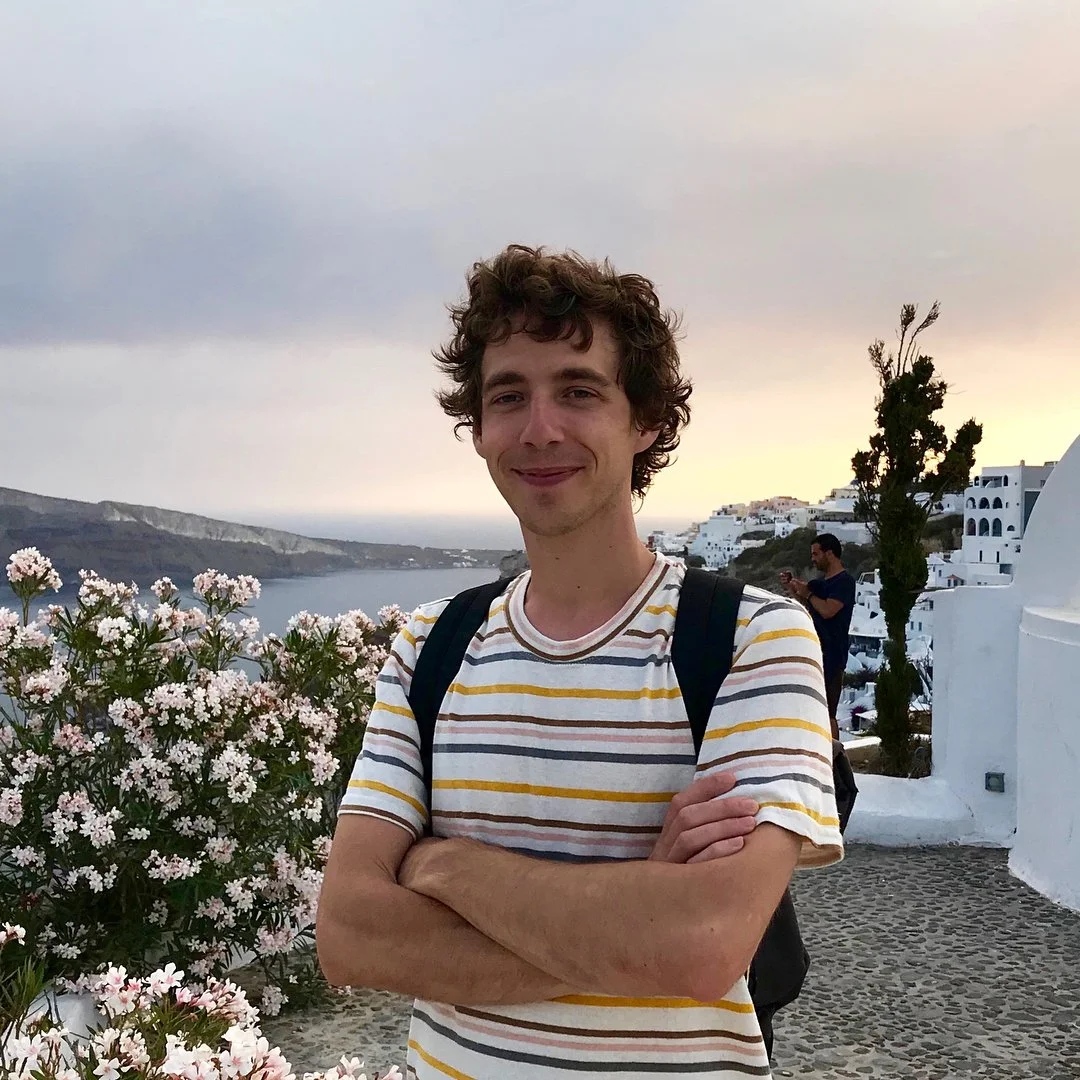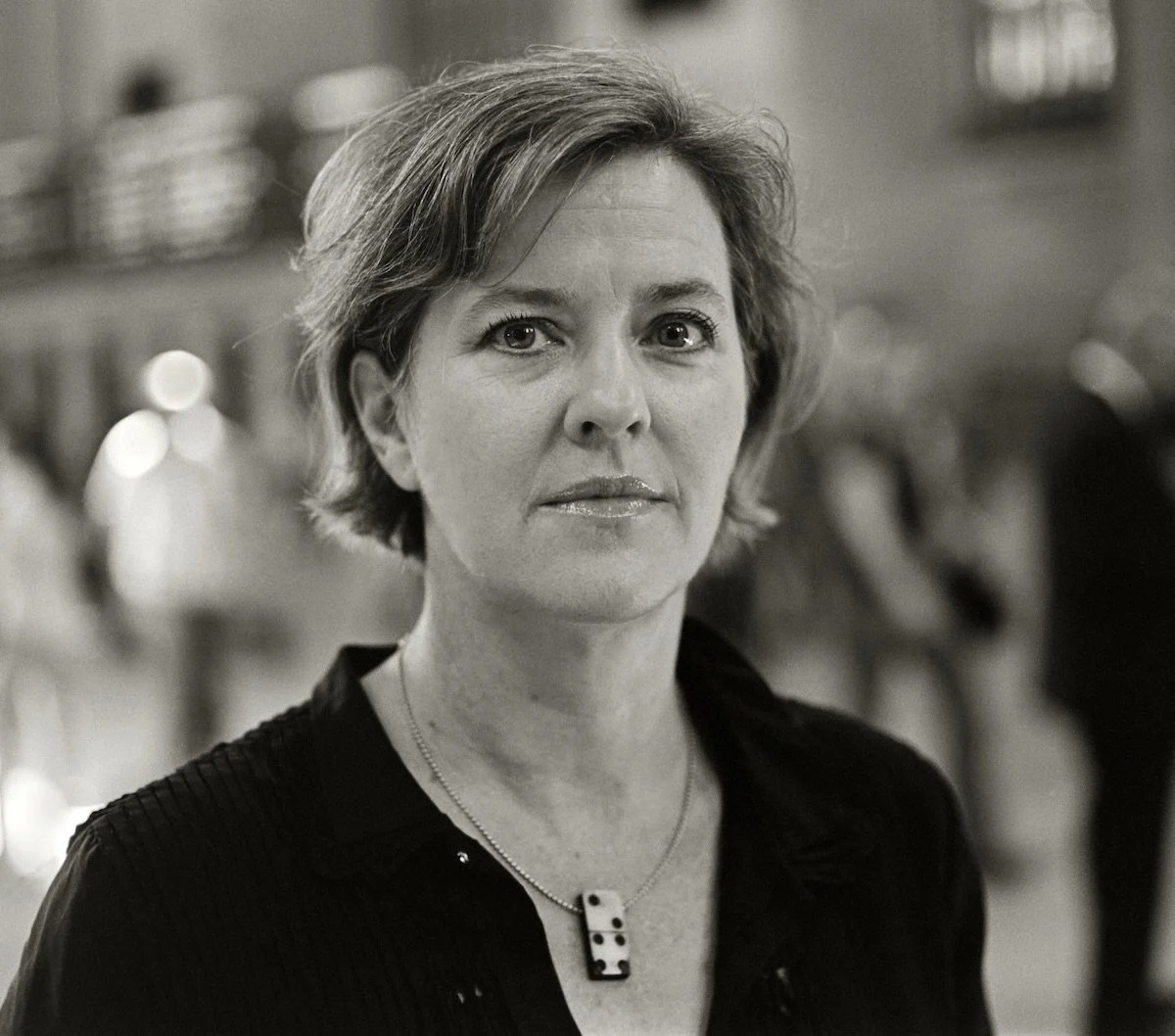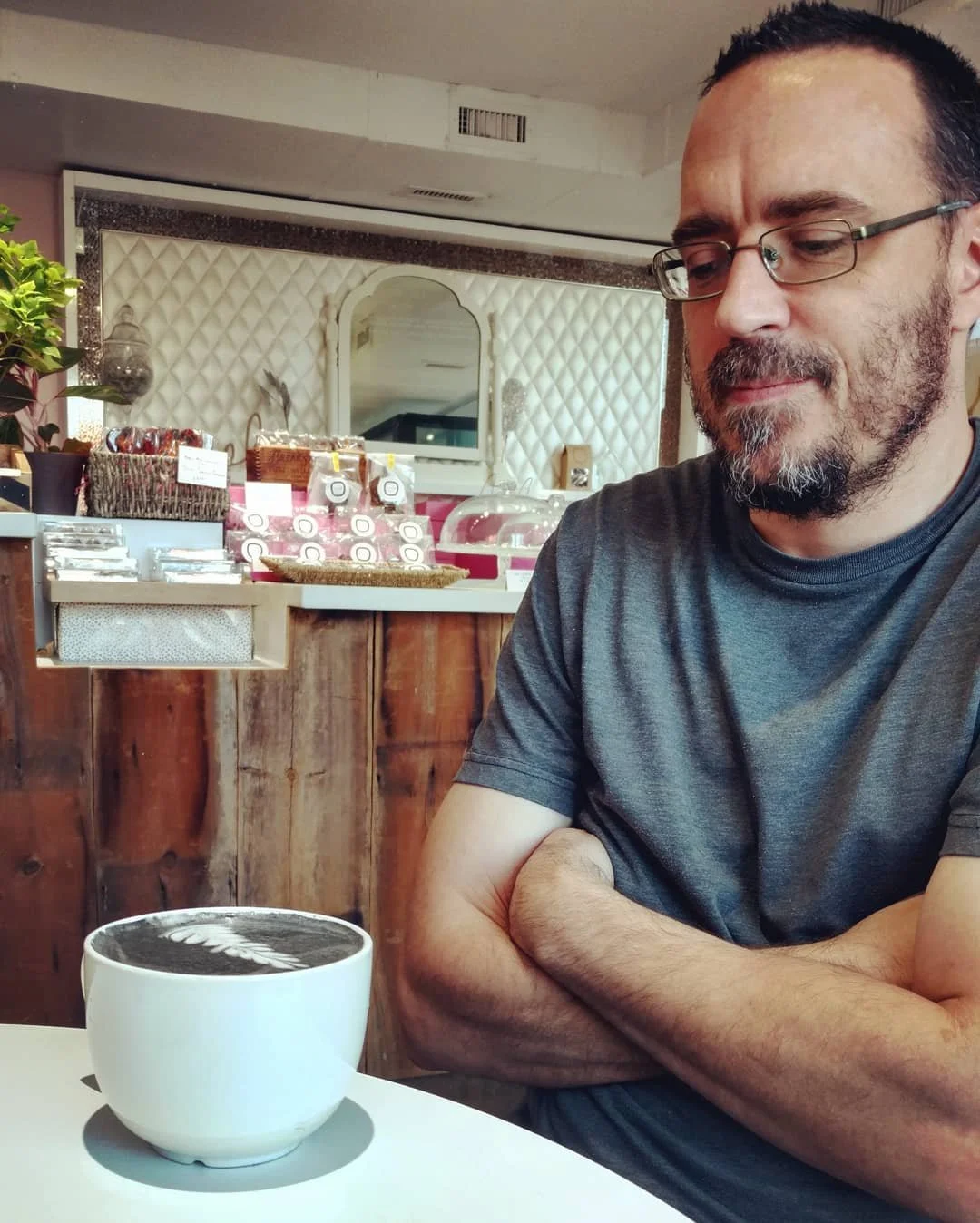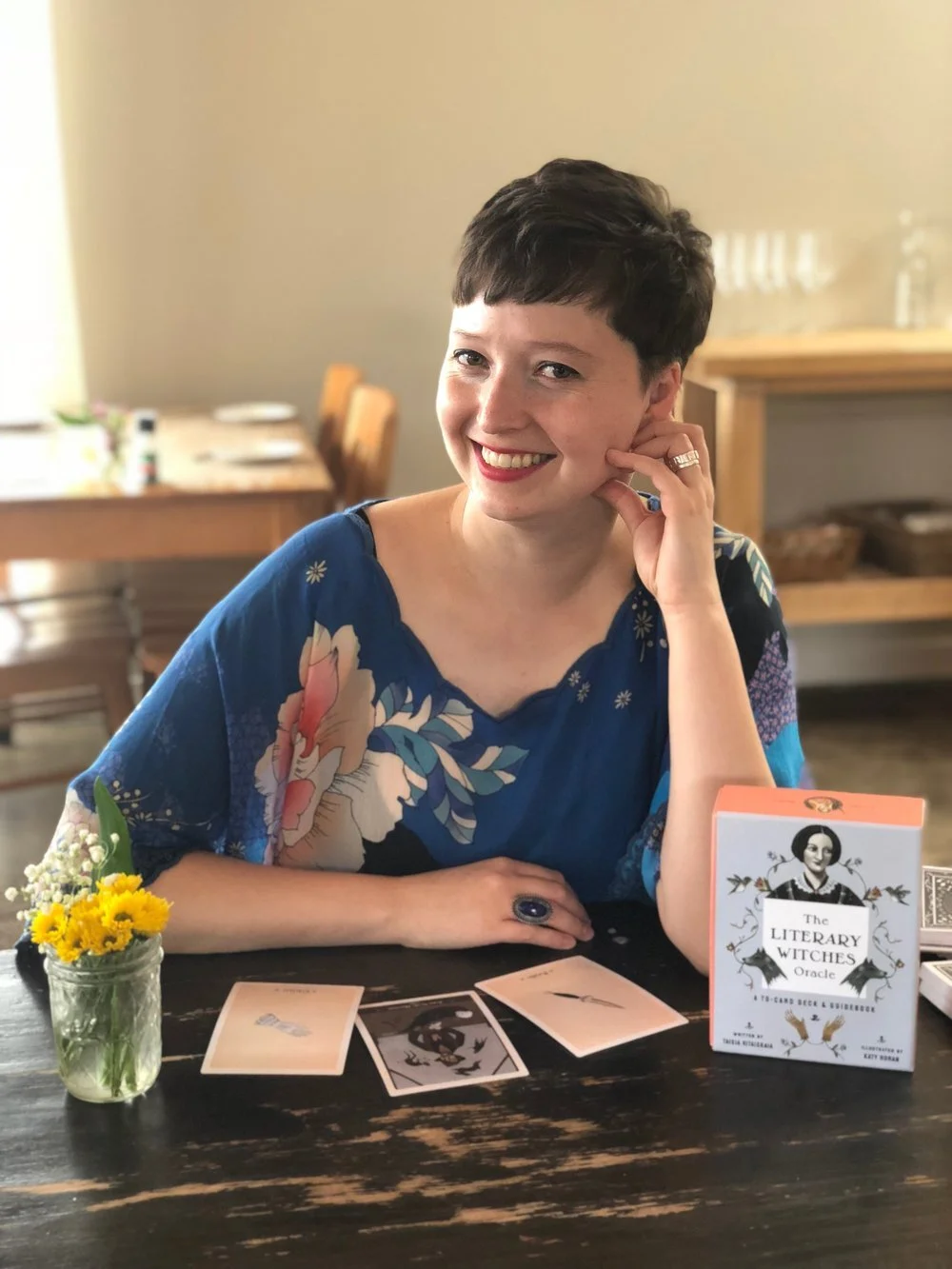Noah Falck is a Buffalo-based poet, editor, educator and curator. It’s worth noting from the jump that he curates a reading series inside a 130-foot abandoned grain elevator. Falck is the author of two full-length collections: 2012’s Snowmen Losing Weight (BatCat Press) and this year’s Exclusions. Available next month through Tupelo Press, his new collection is a tender offering of observation, dream-talk surrealism and an awareness of absence. This book interacts with the ‘without’. It spotlights the gone. Missing mathematics and morning breath, excluding children and gun control. Does excluding nostalgia make something more nostalgic? After reading Exclusions and unearthing his wonderful YouTube page, I chatted with Falck about his new collection, his music preferences, the vast differentiation between his two books (and chapbooks), and a geographic writing prompt you should spend time with this week.
via Exclusions
Let's begin with an icebreaker. What's the last book of poems you read - and the last film you saw - before this interview?
The last book of poems I read was The Tradition by Jericho Brown, which was alarmingly beautiful. I just started Not Here by Hieu Minh Nguyen, which I am quite excited to explore. In terms of films, outside of Disney features (because of quarantining with a 5-year-old), I haven’t watched a “real” film since seeing Parasite in February. That feels like years ago. In the queue I am greatly anticipating Da 5 Bloods, Uncut Gems, and Jojo Rabbit. Outside of reading, I’ve been watching more streaming shows than anything else including the new Perry Mason series, The Last Dance, Mrs. America, and My Brilliant Friend, which I absolutely adore.
Congratulations on your forthcoming release! Tell us a little bit about Exclusions and the focus on a poem's missing (instead of added) elements?
Exclusions plays with the idea of leaving out, which in some ways came from the strong urge to build poems that held everything inside them. I’ve been interested in that idea for many years. Put everything in a poem. The parking lot, the politics, the shower scene, the tourists. The exclusionary idea really acts as an emphasis for the reader. It gives them a stepping stone into the poem. It’s up to the reader, as it always is, to decide where they want to go / how they want to read the poems. Do you focus on the excluded or wander through the outskirts with the children and the snowplows? Either way, I hope the poems offer up a chance to have some rhythm in the mind.
How was the process for Exclusions different from your debut collection, Snowmen Losing Weight?
I think everything was different. I was a different person, living another life. Snowmen gathers the poems that were written in the years of learning how to write poems, in a lot of ways. When I started writing poems, I wasn’t thinking about them ending up inside a book. I was just writing poems. Exclusions is a more thoughtfully constructed collection, meaning I was thinking of a book from the beginning. Perhaps the only other similarities between the two books, from a process perspective, is the experimentation, joy, difficulty, and failure — which is maybe a sort of rubric for writing a book. God, I hate the word rubric.
I love seeing poems in a collection speaking and interacting with one another. At what point in the process of the manuscript did you know that each title would be "Poem Excluding..."?
I can’t recall the exact moment when the concept for Exclusions landed. I do remember when I first began writing these poems or at least the skeletons of them. We had just recently moved to Buffalo, back in the fall of 2012, and I was walking around this new city filling up a notebook with images, objects, ideas. And when I would sit down to write, I would page through the notebook and try to write to or respond to these objects and ideas. Groundbreaking, right? I remember around that time reading Dorothea Lasky’s pamphlet Poetry Is Not A Project, and it affected me, in the ways of thinking about the role of poetry and the poems in our lives. I think I agree with Lasky’s main argument that poems are sort of an extension/representation of a life — that they can’t just be housed inside institutions of thought, rather they need to be a party or at least want to party. I think Exclusions would be thrown into the project pile, but I’d also like to believe that the poems inside are trying to party.
Along with your two full-length collections, you have also published a heap of chapbooks. Does one in particular stick out?
I like my last chapbook You Are In Nearly Every Future (Dostoyevsky Wannabe, 2017). It’s a single, fragmented poem meditating on whatever the idea of a future is. When I was writing it the future wasn’t a happy place, and I’m having problems thinking it’s a happy place today, even with a 5-year-old dancing to the latest Waxahatchee record in the other room. I actually wrote Every Future after Exclusions. They have similar themes, I think. Both are sort of exploring the darkness of our days through the flickering light of imagination.
Although Exclusions is still on the horizon, are you working on any other projects / collections / poems?
I started writing a series of poems titled “Fatigue Performance,” which I have been tinkering with on and off for several years. I think they helped me get out of the Exclusions phase and into a more meditative state. They explore fatherhood, in a way, and the feelings associated with living in a saturated media state in a post-Tr*mp world. I’ve also written a collaborative chapbook manuscript with the poet Matt McBride. We are calling it Prerecorded Weather. There are new poems too. Maybe another book.
via Exclusions via Ben Purkert’s Twitter
The openings of your poems are often both tender and fantastical. Full of humor and heart. I don't know the question for this one...Can you elaborate on this? Or perhaps: how do you approach/enter the poem?
I think poems are one of the few places in this life where you can be yourself. Whatever “being yourself means.” I think it means trusting who you are, but also giving yourself the permission to explore and learn more about yourself. Explore the private curiosities, concerns, and excitements of your time. Explore the long list of things that quicken your heart. I like to think I approach poems in this fashion. But maybe I just want to bear hug the world with language.
What draws you to the fabulist and the surreal?
I’m not sure I set out to write in a fabulist or surrealist manner, but clearly some of my poems drive the winding road, park, and listen for those sort of cicadas. I think this energy comes from what I’ve read — how in some ways reading drives everything. What you get excited about speaks volumes to who you are, how you want to write. Early on when I was first writing poems, I think I was most excited by the poets I was newly aware of: Charles Simic, James Tate, John Ashbery, Anne Carson, Claudia Rankine, Mary Ruefle. Today, the list continues to grow. That state of discovery stirs my routine of seeing, listening, and writing.
Along with writing, you also helped edit a volume of New Buffalo poetry. Do you have any other editing projects in the works?
No editing projects in the works at the moment. I was really proud of the New Buffalo Poetry anthology. Buffalo needs more projects that share out and highlight the talent that lives here. That was a small way of doing so.
Outside of literature, what albums/songs/artists/films have captivated you in recent months?
The latest Waxahatchee record, Saint Cloud, has been spinning continuously in our house since March. I also keep returning to the Purple Mountains record. The other day a friend sent me a link to this band Country Westerns who sound like a post alt-country garage rock band. Dirty and raucous. I need that feeling right now. It’s helped me stumble dance all week. I’m also constantly intrigued by the local artists of Buffalo. I recently purchased a piece of art by the artist Dylan England who does these stunning collages that blend his own photography and illustrations alongside found images. Another Buffalo artist who I greatly admire is Joel Brenden. He does it all - photography, design, book arts, illustration, etc. All his art is thoughtful and exploratory. I so love the art scene of Buffalo, New York.
If you can, provide a photo of your workspace. What are some essentials while you create?
I’ve been working out of my dining room for nearly 5 years, really since our daughter came into the world. However, I’m currently transitioning into a makeshift space up into the attic. It needs a bit of work or more realistically a lot of work, but it has a window and my old desk and I think that’s enough. I only recently began to drink coffee within the past year or so, before that I was a strict tea guy. I definitely need a warm beverage beside me during my morning writing time, that caffeine trigger, along with my notebooks and the books I’m currently reading. Sometimes I listen to music, sometimes I need total silence.
For this ongoing author interview series, I'm asking for everyone to present a writing prompt. It can be as abstract or as concrete as you choose.
Love this. Tupelo Press had me put together a Reader’s Companion guide so Exclusions can be adopted into classrooms. Here’s a writing prompt from that packet:
Map Poem - write a poem that also functions as a map. Or find a map of your hometown and write a poem on top of it – use the names of cities & towns as titles. These may be very short poems or single poetic lines. Xerox the finished poem map and distribute at the local visitor center.
In closing, do you have any advice for beginning writers? Or rather, what's something you would have liked to have known when you first started taking your writing seriously?
Read widely and without discrimination. You never know what voices will speak to you. Write for yourself, and find your own path — there’s no wrong way to become. Pay attention and listen in new ways. Do your best to cultivate a practice of appreciation. And be kind through all of it. The world needs more kindness.
Any final thoughts / words of wisdom / shout-outs? Thank you!
I’m not sure I’d call it wisdom, but here’s some stuff I constantly remind my child, which I think can be useful: Say please and thank you, particularly to the ones who care about you.
Shout-outs: Black Lives Matter
